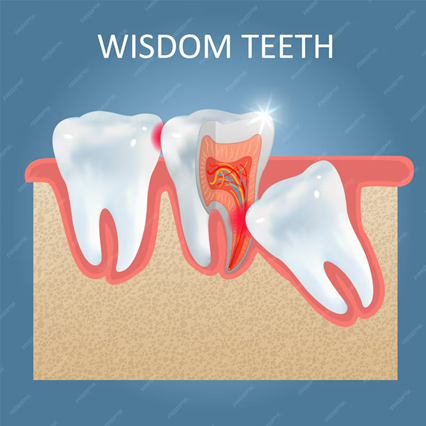Wisdom tooth extraction, a standard dental procedure many undergo during their late teens or early twenties. As these third molars often cause discomfort and various dental issues, dentists usually recommend removal to maintain oral health. However, this procedure requires lifestyle adjustments to ensure a smooth recovery and minimal complications.
Recovery Period: What to Expect
The recovery period following wisdom tooth extraction varies from person to person but generally lasts about a week. During this time, following your dentist’s instructions carefully is essential to promote proper healing and avoid potential complications. Everyday experiences during the recovery period include:
- Pain and Swelling: It’s normal to experience some pain and swelling in the first few days after the procedure. Over-the-counter pain relievers and prescribed medications can help manage discomfort.
- Bleeding: Minor bleeding is common initially. Bite down on gauze pads to control bleeding and replace them as needed.
- Dietary Restrictions: Stick to a soft diet to avoid stressing the healing areas. Soups, yogurts, and mashed foods are good options.
- Oral Hygiene: Gently rinse your mouth with warm salt water daily and continue brushing your teeth, avoiding surgical sites
- Physical Activity: Rest and avoid vigorous physical activity for a few days to prevent bleeding and swelling.
Lifestyle Changes for a Smooth Recovery
- Dietary Adjustments: To ensure minimal irritation to the surgical sites, opt for soft and easily chewable foods. Incorporate foods rich in vitamins and minerals to support the healing process. Avoid hot and spicy foods that could cause discomfort.
- Oral Hygiene: Maintaining oral hygiene is crucial during recovery. Gently brush your teeth, avoid surgical areas, and use a mild, alcohol-free mouthwash to make sure your mouth is clean and also to reduce the risk of infection.
- Hydration: Drinking plenty of water supports the healing process and prevents dehydration, which can impede recovery. Opt for water and avoid acidic or sugary beverages that might irritate the surgical sites.
- Rest and Sleep: Adequate rest allows your body to heal efficiently. Sleep with your head elevated to reduce swelling and avoid sleeping on the side of the extraction.
- Avoid Smoking: Smoking interferes with healing and increases the risk of complications. If you smoke, refrain from doing so during the recovery period.
- Pain Management: Over-the-counter pain relievers and prescribed medications should be taken as directed to manage discomfort effectively. Always consult your dentist or healthcare provider before taking any new medicines.
- Follow-Up Appointments: Attend the follow-up appointments with your dentist to ensure the healing process progresses and address any concerns.
Conclusion
Wisdom tooth extraction, though a standard procedure, requires careful attention to promote a smooth recovery and prevent complications. Following these lifestyle adjustments can significantly improve your chances of healing quickly and avoiding discomfort. Remember that every individual’s recovery experience is unique, so be patient with yourself and reach out to your dentist if you have any concerns.

